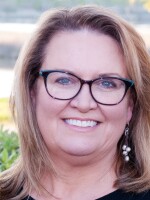DEBBIE ELLIOTT, host:
From NPR News, this is ALL THINGS CONSIDERED. I'm Debbie Elliott.
We have much to report this weekend, with tensions boiling over in Gaza, more violence in Iraq, and talk about how to stop the bloodshed there. We'll have updates on those stories in a few moments.
But first, with Fidel Castro reported in his last days, ten members of the U.S. Congress have been in Cuba this weekend to pave the way for closer ties with the Communist nation.
The delegation is led by Republican Congressman Jeff Flake of Arizona and Democrat William Delahunt of Massachusetts. The two chair the bipartisan Cuba Working Group, which has pushed for an easing of U.S. sanctions against Cuba.
I'm joined now by Congressman Flake on the line from Havana.
Hello.
Representative JEFF FLAKE (Republican, Arizona): Hi.
ELLIOTT: Thank you. Two weeks ago, Raul Castro, Fidel's brother and now the acting president of Cuba, said in a speech that he is open to dialogue with the U.S. government. Did you meet with him?
Rep. FLAKE: We did not. Today is our final day and it doesn't look like that meeting will happen.
ELLIOTT: I assume you had requested a meeting with him.
Rep. FLAKE: We did. And we wanted to meet with him, but it seems the Cuban government at least is not ready to move on at this point. I think a meeting with him would signal that the Fidel era is over, and I'm not sure they're ready for that yet.
ELLIOTT: Did anyone you met with talk about Fidel's condition? You know, there are reports here that he is terminally ill and will not be returning to power. Did anyone address that?
Rep. FLAKE: Yes, in fact they did. The government officials we met with, one even said this is not cancer and it is not terminal and he will be back.
I can say that that view is not shared by others outside of the government, but that's certainly the government line.
ELLIOTT: Given that context, who were you able to meet with and what kinds of progress do you think you made?
Rep. FLAKE: Well, we met with the foreign minister, Felipe Roque. Also Fernando Ramirez of the Central Committee of the Communist Party. And also the head of the National Assembly, Ricardo Alarcon, and many of these we've met with on prior visits.
As far as dialogue, I think that it's important that whether or not the Cubans believe that the transition is here, a lot of people do. And I think that it's a time where we as a government - the U.S. government - should change our policy and have some dialogue.
ELLIOTT: Were these officials open to that dialogue with the U.S.? What did they tell you?
Rep. FLAKE: Yes, I believe they are. Sorry for the - you may be hearing background as I'm walking in Havana. But yes, I think they're open to dialogue. Whether or not it will be actual negotiations, as Raul Castro said on December 2nd, is another thing.
ELLIOTT: Did anyone you meet with talk about changes that might come to Cuba after Fidel?
Rep. FLAKE: You know what, as far as the government officials, no. They were very guarded there. I kind of had the sense that they were extra guarded, given the transition, almost as if they were auditioning for a role in the new regime, as it were, and being careful not to say something that would disqualify them. That's just simply my sense. They certainly were not open to any change in policy, and we didn't get that at all.
ELLIOTT: So if you get the sense that they're auditioning for a new regime, it sounds like a very similar regime to Fidel Castro's.
Rep. FLAKE: If we had hoped, and I think there were a number of people who had false hope, that as soon as Fidel is gone or too ill to come back, that there would be, you know, riots in the streets or people demanding immediate change, that's simply not happening. It's quiet here. I think for the most part, Cuban people have accepted that Fidel will not come back, and little will change unless there are pressures from without. The problem with U.S. policy, in my view, is we have very little leverage.
ELLIOTT: President Bush's position has always been that can't happen until Cuba becomes more Democratic. Where do you disagree with the president?
Rep. FLAKE: Everyone wants Cuba to become more democratic. I think we simply have a differing opinion on how to achieve that goal. It just seems rather strange to us that we don't approve of the human rights record in China, or to some extent in Vietnam or elsewhere in the world or even during the Soviet era, but we never cut off contact. We never prohibited Americans from traveling there and we always had diplomatic contact, with very few exceptions, throughout that period.
And with regard to the Cuban government, I've never been convinced that they really want the travel ban lifted. I know they want to make it - they want to make us think that, but I have a feeling that if we did lift it, that they would maybe move to restrict travel, because I simply don't believe that they can control it, and I think they fear that more than anything.
I think the people wonder if the Cuban people fear change. I don't think they do, but I sure think the Cuban government fears change. And if we have a lifting of the travel ban allowing unfettered access, I think that they might move to clamp down. But it ought to be them that does that, not us.
ELLIOTT: Republican Congressman Jeff Flake of Arizona speaking with us from Havana. Thank you so much, sir.
Rep. FLAKE: Thank you for having me. Transcript provided by NPR, Copyright NPR.






